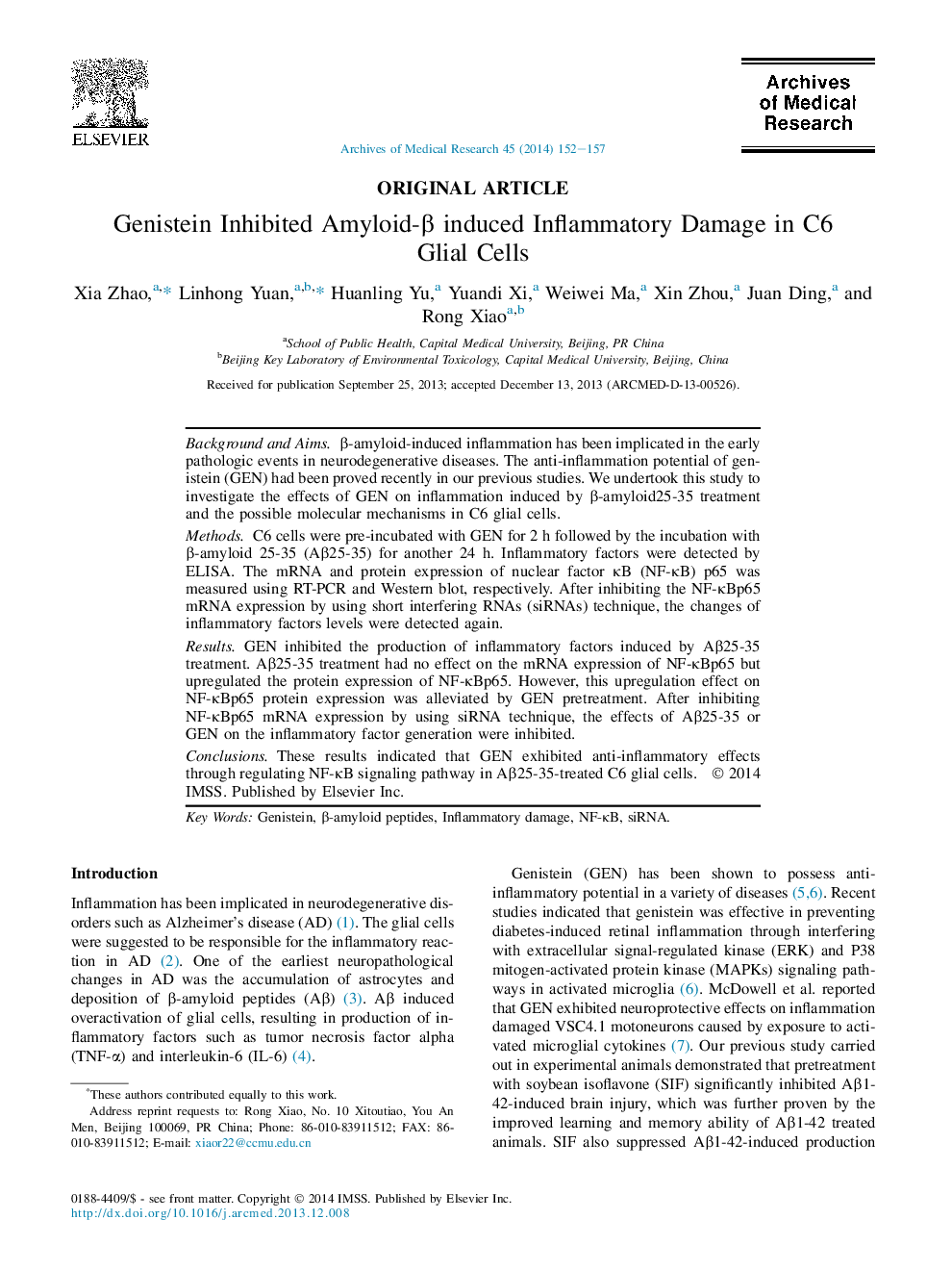| Article ID | Journal | Published Year | Pages | File Type |
|---|---|---|---|---|
| 3446629 | Archives of Medical Research | 2014 | 6 Pages |
Background and Aimsβ-amyloid-induced inflammation has been implicated in the early pathologic events in neurodegenerative diseases. The anti-inflammation potential of genistein (GEN) had been proved recently in our previous studies. We undertook this study to investigate the effects of GEN on inflammation induced by β-amyloid25-35 treatment and the possible molecular mechanisms in C6 glial cells.MethodsC6 cells were pre-incubated with GEN for 2 h followed by the incubation with β-amyloid 25-35 (Aβ25-35) for another 24 h. Inflammatory factors were detected by ELISA. The mRNA and protein expression of nuclear factor κB (NF-κB) p65 was measured using RT-PCR and Western blot, respectively. After inhibiting the NF-κBp65 mRNA expression by using short interfering RNAs (siRNAs) technique, the changes of inflammatory factors levels were detected again.ResultsGEN inhibited the production of inflammatory factors induced by Aβ25-35 treatment. Aβ25-35 treatment had no effect on the mRNA expression of NF-κBp65 but upregulated the protein expression of NF-κBp65. However, this upregulation effect on NF-κBp65 protein expression was alleviated by GEN pretreatment. After inhibiting NF-κBp65 mRNA expression by using siRNA technique, the effects of Aβ25-35 or GEN on the inflammatory factor generation were inhibited.ConclusionsThese results indicated that GEN exhibited anti-inflammatory effects through regulating NF-κB signaling pathway in Aβ25-35-treated C6 glial cells.
